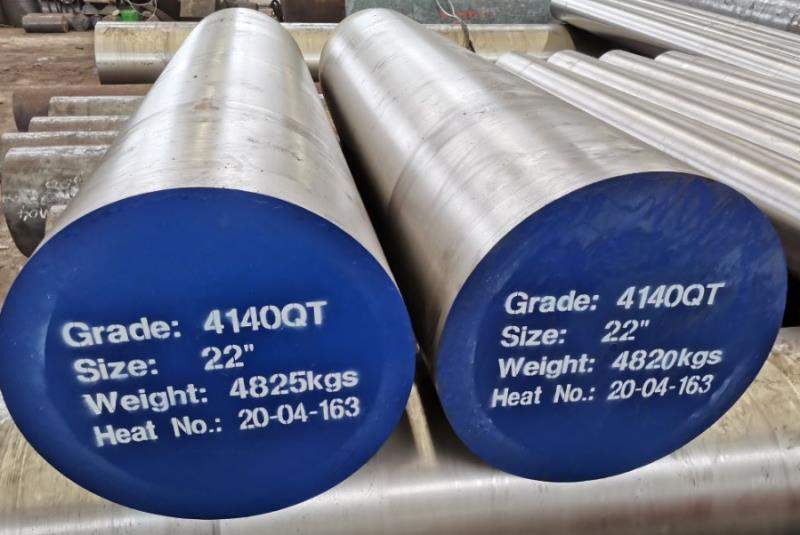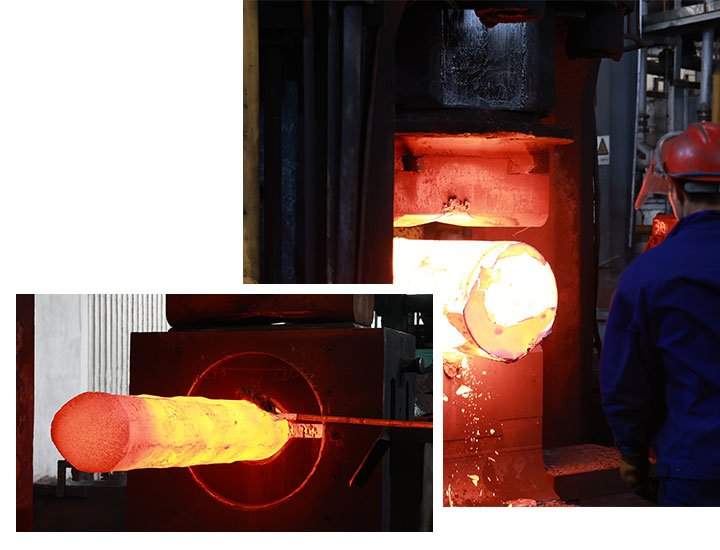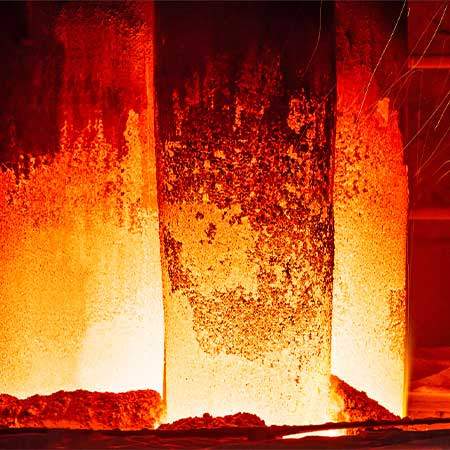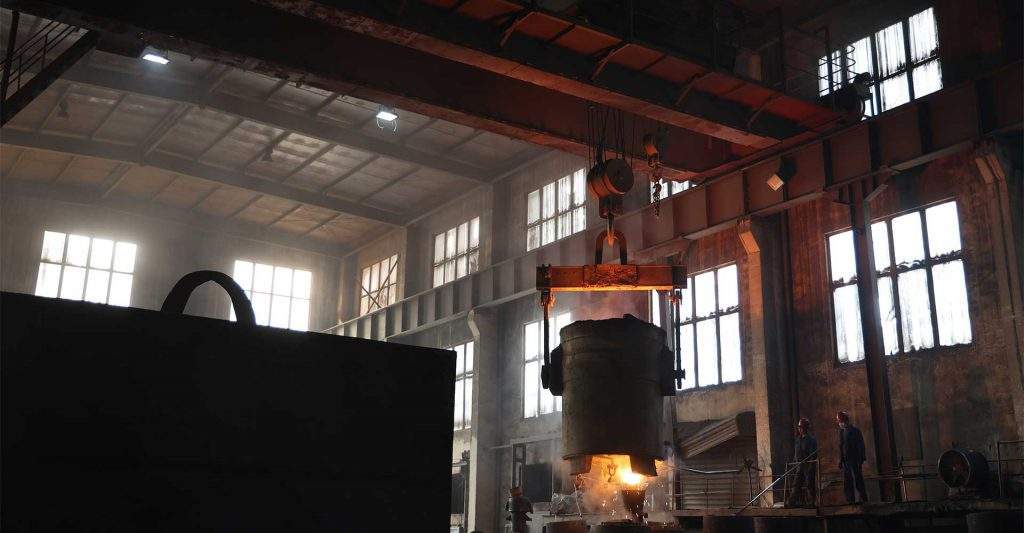Welcome to My Blog!
Before we dive into the content, I’d love for you to join me on my social media platforms where I share more insights, engage with the community, and post updates. Here’s how you can connect with me:
Facebook:https://www.facebook.com/profile.php?id=100085401406977
LinkedIn:https://www.linkedin.com/showcase/102680001/admin/dashboard/
Now, let’s get started on our journey together. I hope you find the content here insightful, engaging, and valuable.
Introduction
In the world of manufacturing and heavy-duty applications, material selection is critical to ensuring the durability, strength, and reliability of components. One material that consistently stands out in demanding environments is AISI 4140 steel. Known for its excellent toughness, high tensile strength, and resistance to wear, AISI 4140 steel is the preferred choice for a wide range of industrial applications. This comprehensive guide will explore the properties, benefits, and common uses of AISI 4140 steel, explaining why it has earned its reputation as the go-to material for tough jobs.
Understanding AISI 4140 Steel

What is AISI 4140 Steel?
AISI 4140 steel is a chromium-molybdenum alloy steel that is widely used in industries requiring high strength and toughness. The alloy is composed of carbon, manganese, phosphorus, sulfur, silicon, chromium, and molybdenum, with the following approximate chemical composition:
| Element | Percentage (%) |
|---|---|
| Carbon (C) | 0.38 – 0.43 |
| Manganese (Mn) | 0.75 – 1.00 |
| Phosphorus (P) | 0.035 max |
| Sulfur (S) | 0.040 max |
| Silicon (Si) | 0.15 – 0.35 |
| Chromium (Cr) | 0.80 – 1.10 |
| Molybdenum (Mo) | 0.15 – 0.25 |
This composition gives AISI 4140 steel its unique properties, making it suitable for high-stress applications where durability and resistance to wear are paramount.
Key Properties of AISI 4140 Steel
AISI 4140 steel is prized for its combination of mechanical properties that make it ideal for tough jobs:
- High Tensile Strength: AISI 4140 steel has a tensile strength of approximately 655 MPa in its annealed state and can reach up to 850-1000 MPa when heat treated. This high tensile strength allows it to withstand heavy loads without deformation.
- Excellent Toughness: The steel’s toughness ensures that it can absorb energy without fracturing, making it resistant to sudden impacts and dynamic loads.
- Good Ductility: AISI 4140 steel maintains good ductility, which means it can be formed or machined into various shapes without cracking.
- Wear Resistance: The presence of chromium and molybdenum enhances the steel’s resistance to wear and abrasion, ensuring longevity even in harsh conditions.
- Hardenability: AISI 4140 steel can be hardened through heat treatment processes such as quenching and tempering, improving its strength and wear resistance further.
Common Applications of AISI 4140 Steel

Manufacturing and Engineering
AISI 4140 steel is extensively used in the manufacturing and engineering sectors due to its robust properties. Some common applications include:
- Gears and Shafts: The high tensile strength and toughness of AISI 4140 steel make it ideal for manufacturing gears and shafts that are subjected to heavy loads and rotational forces.
- Fasteners: Bolts, nuts, and other fasteners made from AISI 4140 steel are used in high-stress environments where reliability is critical.
- Tooling Components: AISI 4140 steel is often used to make tools and dies, particularly for high-stress applications such as stamping and forging.
Automotive Industry
In the automotive industry, AISI 4140 steel is used to manufacture various critical components:
- Crankshafts: AISI 4140 steel is commonly used for crankshafts due to its ability to withstand the high stresses and cyclic loads experienced during engine operation.
- Axles: The wear resistance and toughness of AISI 4140 steel make it a popular choice for manufacturing axles, which must endure constant stress and impact.
- Suspension Components: AISI 4140 steel is also used in the production of suspension components, where its strength and durability contribute to vehicle safety and performance.
Oil and Gas Industry
The demanding conditions of the oil and gas industry require materials that can withstand extreme pressure, temperature, and corrosive environments. AISI 4140 steel is frequently used in this sector for:
- Drill Collars: AISI 4140 steel is used to manufacture drill collars that stabilize drilling equipment and prevent bending and buckling during operations.
- Valves and Couplings: The high strength and corrosion resistance of AISI 4140 steel make it suitable for manufacturing valves and couplings used in pipelines and drilling rigs.
Construction and Heavy Machinery
AISI 4140 steel is a key material in the construction of heavy machinery and equipment:
- Hydraulic Cylinders: The wear resistance and toughness of AISI 4140 steel make it ideal for hydraulic cylinders, which are essential components in construction equipment.
- Structural Components: In construction machinery, AISI 4140 steel is used for structural components that require high strength and the ability to withstand dynamic loads.
Heat Treatment of AISI 4140 Steel

The Importance of Heat Treatment
Heat treatment is a critical process in enhancing the properties of AISI 4140 steel. By applying specific heat treatments, the mechanical properties of the steel, such as hardness, strength, and toughness, can be optimized for particular applications.
Common Heat Treatment Processes
Annealing: Annealing involves heating the steel to a specific temperature and then slowly cooling it to relieve internal stresses and improve machinability. AISI 4140 steel in its annealed state has a lower hardness, making it easier to machine.
Quenching and Tempering: Quenching involves heating the steel to a high temperature and then rapidly cooling it in water or oil. This process increases the hardness and strength of the steel. Tempering is then performed to reduce brittleness and achieve the desired balance of toughness and hardness.
Normalizing: Normalizing involves heating the steel to a temperature above its critical point and then air cooling it. This process refines the grain structure, improving the steel’s mechanical properties and making it more uniform.
Table: Mechanical Properties of AISI 4140 Steel in Different Conditions
The table below summarizes the mechanical properties of AISI 4140 steel under different heat treatment conditions:
| Condition | Tensile Strength (MPa) | Yield Strength (MPa) | Hardness (HB) | Elongation (%) |
|---|---|---|---|---|
| Annealed | 655 | 415 | 197 | 25 |
| Quenched and Tempered (200°C) | 850 – 1000 | 700 – 850 | 241 – 300 | 14 – 18 |
| Quenched and Tempered (600°C) | 755 – 860 | 620 – 725 | 229 – 269 | 18 – 20 |
| Normalized | 850 – 900 | 655 – 695 | 241 – 269 | 18 – 20 |
This table illustrates how different heat treatment processes can significantly alter the mechanical properties of AISI 4140 steel, allowing it to be tailored to specific applications.
Advantages of Using AISI 4140 Steel

Versatility
One of the primary advantages of 4140 steel is its versatility. The ability to modify its properties through heat treatment makes it suitable for a wide range of applications across various industries. Whether you need high tensile strength, excellent toughness, or enhanced wear resistance, AISI 4140 steel can be adapted to meet your specific requirements.
Durability and Longevity
4140 steel’s resistance to wear, fatigue, and impact ensures that components made from this material have a long service life. This durability makes it a cost-effective choice for industries where equipment is subjected to heavy use and harsh conditions.
High Strength-to-Weight Ratio
4140 steel offers an excellent strength-to-weight ratio, meaning it provides high strength without being excessively heavy. This property is particularly beneficial in applications where weight reduction is important, such as in automotive and aerospace components.
Cost-Effectiveness
While AISI 4140 steel may have a higher initial cost compared to some other materials, its long-term benefits, such as reduced maintenance costs and extended service life, make it a cost-effective option in the long run. Its versatility also reduces the need to source multiple materials for different applications.
Conclusion
AISI 4140 steel is a robust and versatile material that is well-suited for tough jobs across various industries. Its excellent mechanical properties, combined with the ability to tailor its performance through heat treatment, make it the go-to material for applications requiring high strength, toughness, and wear resistance. Whether you’re in the automotive, oil and gas, or construction industry, 4140 steel offers the reliability and durability needed to tackle the most demanding tasks.
FAQs
What is 4140 steel used for?
4140 steel is commonly used for manufacturing gears, shafts, crankshafts, axles, and other high-stress components in industries such as automotive, oil and gas, and construction.
How does heat treatment affect 4140 steel?
Heat treatment processes such as quenching and tempering can significantly enhance the hardness, strength, and toughness of 4140 steel, making it suitable for various applications.
What are the key properties of 4140 steel?
The key properties of 4140 steel include high tensile strength, excellent toughness, good ductility, wear resistance, and hardenability.
Is 4140 steel suitable for high-temperature applications?
Yes, 4140 steel can maintain its strength and toughness at elevated temperatures, making it suitable for high-temperature applications.
How does 4140 steel compare to other alloy steels?
4140 steel offers a good balance of strength, toughness, and wear resistance, making it more versatile than some other alloy steels, such as AISI 4340 or D2 tool steel.
What industries commonly use 4140 steel?
Industries such as automotive, oil and gas, manufacturing, and construction commonly use 4140 steel for high-stress applications.
Can 4140 steel be welded?
Yes, 4140 steel can be welded, but it requires preheating and post-weld heat treatment to prevent cracking and ensure strong welds.
What is the hardness range of 4140 steel?
The hardness of 4140 steel can range from approximately 197 HB in its annealed state to over 300 HB when quenched and tempered.
How does the addition of chromium and molybdenum affect 4140 steel?
The addition of chromium and molybdenum enhances the wear resistance, toughness, and hardenability of 4140 steel, making it more suitable for demanding applications.
Is 4140 steel resistant to corrosion?
While 4140 steel offers some corrosion resistance due to its chromium content, it is not as corrosion-resistant as stainless steels and may require surface treatments for use in corrosive environments.
